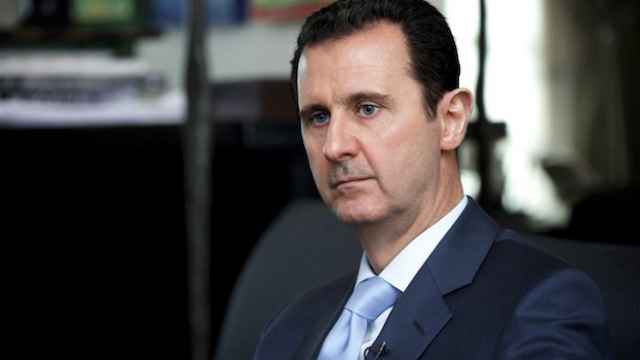Representatives of Syrian President Bashar Assad and opposition figures agreed at talks on Thursday to hold another round in Moscow, moderator Vitaly Naumkin said Thursday, but no date was set.
The talks, a Russian initiative to revive stalled peace efforts in Syria's four-year-old civil war, were shunned by the main Syrian political opposition, and participants came together to adopt a series of points that largely represent Russia's own position on the violence. Moscow is a key backer of Assad.
Naumkin, an academic, said the sides agreed to join forces over the threat of terrorism in Syria, where Islamic State insurgents have taken over wide swathes of territory, though Moscow has described numerous other anti-Assad groups fighting in the country as "terrorists."
"The issue of fighting terrorism was one of the key themes discussed. This is exactly what brings the sides together as a key challenge to Syria's territorial integrity and unity," said Naumkin.
He said the talks offered the best chance at reaching another round of peace negotiations between the government and opposition in Geneva. The latest round of Geneva talks, the Geneva II conference, was held early last year.
Russia, whose stance on Syria has protected Assad from Western sanctions in the United Nations Security Council, pushed through with the conference despite a lack of support from Europe or the United States, where Moscow's ties are in tatters over Ukraine.
Naumkin said the majority of participants agreed to a series of points known as the Moscow principles which largely adhere to the talking points Russian Foreign Minister Sergei Lavrov and other diplomats have tirelessly adhered to during the conflict.
They include maintaining the sovereignty and unity of Syria, the rejection of foreign interference, combating terrorism and settling the country's civil war through peaceful means.
The main Syrian political opposition, the Western-backed National Coalition for Syrian Revolutionary and Opposition Forces, shunned the meeting in Moscow, saying it would only take part in talks that lead to Assad leaving power.
A document approved by rival sides during the first round of Geneva talks in 2012 called for creating a transitional governing body formed by mutual consent.
But the sides and their foreign backers, including Russia and the United States, have differed on what that means for Assad. His fate remains a key sticking point in the conflict, which has killed more than 200,000 people in almost four years.
There had never been high hopes of a breakthrough at the Moscow talks, a Western diplomat who tracks Syria said. He said that a lack of a real opposition, a lack of enthusiasm on behalf of Assad's government and a decision by ex-National Coalition chief Moaz al-Khatib to shun the conference had doomed it.
"I thought — this is not happening that well, and it went downhill from there," the diplomat said.
A Message from The Moscow Times:
Dear readers,
We are facing unprecedented challenges. Russia's Prosecutor General's Office has designated The Moscow Times as an "undesirable" organization, criminalizing our work and putting our staff at risk of prosecution. This follows our earlier unjust labeling as a "foreign agent."
These actions are direct attempts to silence independent journalism in Russia. The authorities claim our work "discredits the decisions of the Russian leadership." We see things differently: we strive to provide accurate, unbiased reporting on Russia.
We, the journalists of The Moscow Times, refuse to be silenced. But to continue our work, we need your help.
Your support, no matter how small, makes a world of difference. If you can, please support us monthly starting from just $2. It's quick to set up, and every contribution makes a significant impact.
By supporting The Moscow Times, you're defending open, independent journalism in the face of repression. Thank you for standing with us.
Remind me later.





